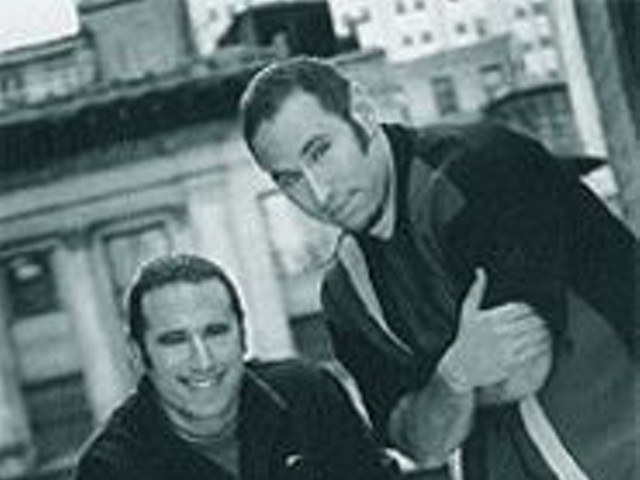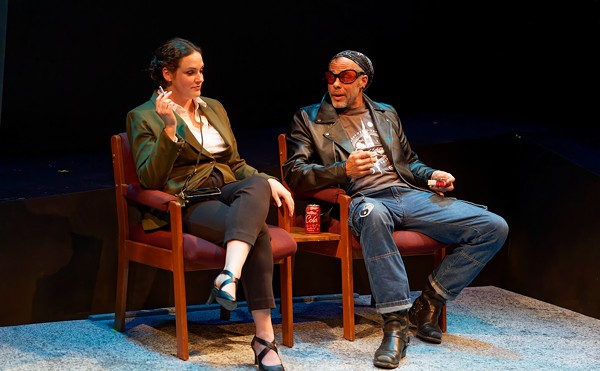Dancing is the reason to see A Chorus Line, and director Michael Hamilton has put together a first-rate dance ensemble. Stephen Bourneuf does a fine job of re-creating and adapting the original choreography to the tiny Kirkwood stage, but some of it has not aged well. Cassie's celebrated solo to "The Music and the Mirror" played as a bold statement of self in 1975; now the overwrought choreography borders on parody. But Peggy Taphorn, a terrific dancer, pulls off the number with class and skill. For the most part, it's great fun to watch dance routines uninfluenced by MTV, and when the ensemble takes the stage in their shiny gold costumes and top hats for the razor-sharp precision of "One," it still packs quite a punch.
Vocally, the ensemble is strong, but as soloists they are less so. "At the Ballet" is a glorious blend of the voices of Yvonne Meyer, Alisa Klein and Erin Malloy, who, unfortunately, tends to belt too much during her solos. Some of the singers sound constrained by arrangements pitched in their nether regions, and the prerecorded accompaniment lacks the bassy punch needed for the pop-influenced score. Joanna Young as Diana delivers a strong "Nothing" and "What I Did for Love."
Young, however, is one of the few in the cast who remembers that singing is acting to music. And acting is where this production falls short. Stephen Nachamie, as Paul, draws the audience in with the understated delivery of his monologue, and Klein is appealing as Judy, but the rest of the cast skims the surface and would have benefited from a stronger directorial presence. The climactic scene, in which several characters reach difficult epiphanies that lead to "What I Did for Love," plays like small talk among a group of people waiting for the check at a restaurant.
Flashy musical numbers are great, but don't we enjoy them more when we're emotionally attached to the characters?





